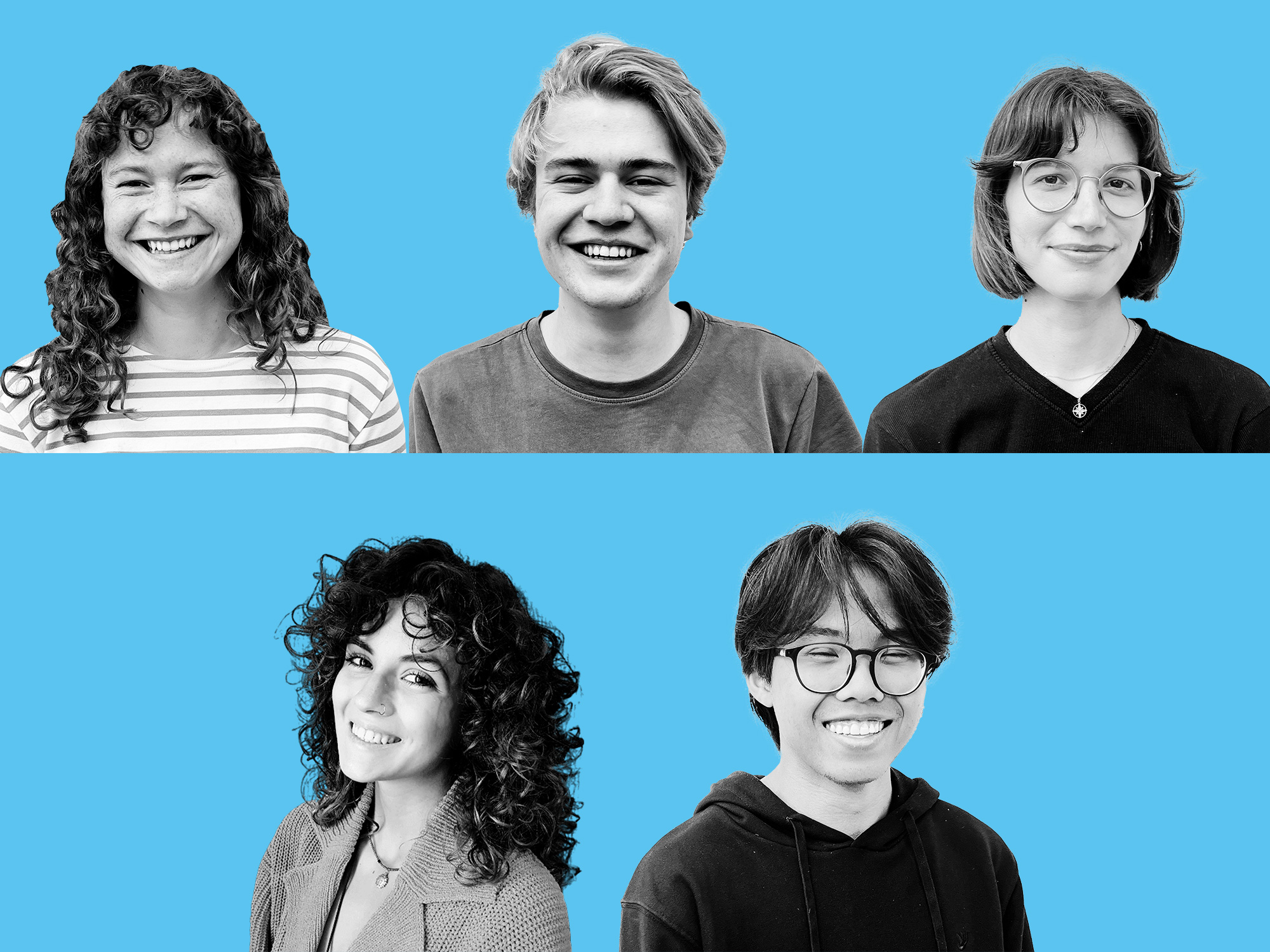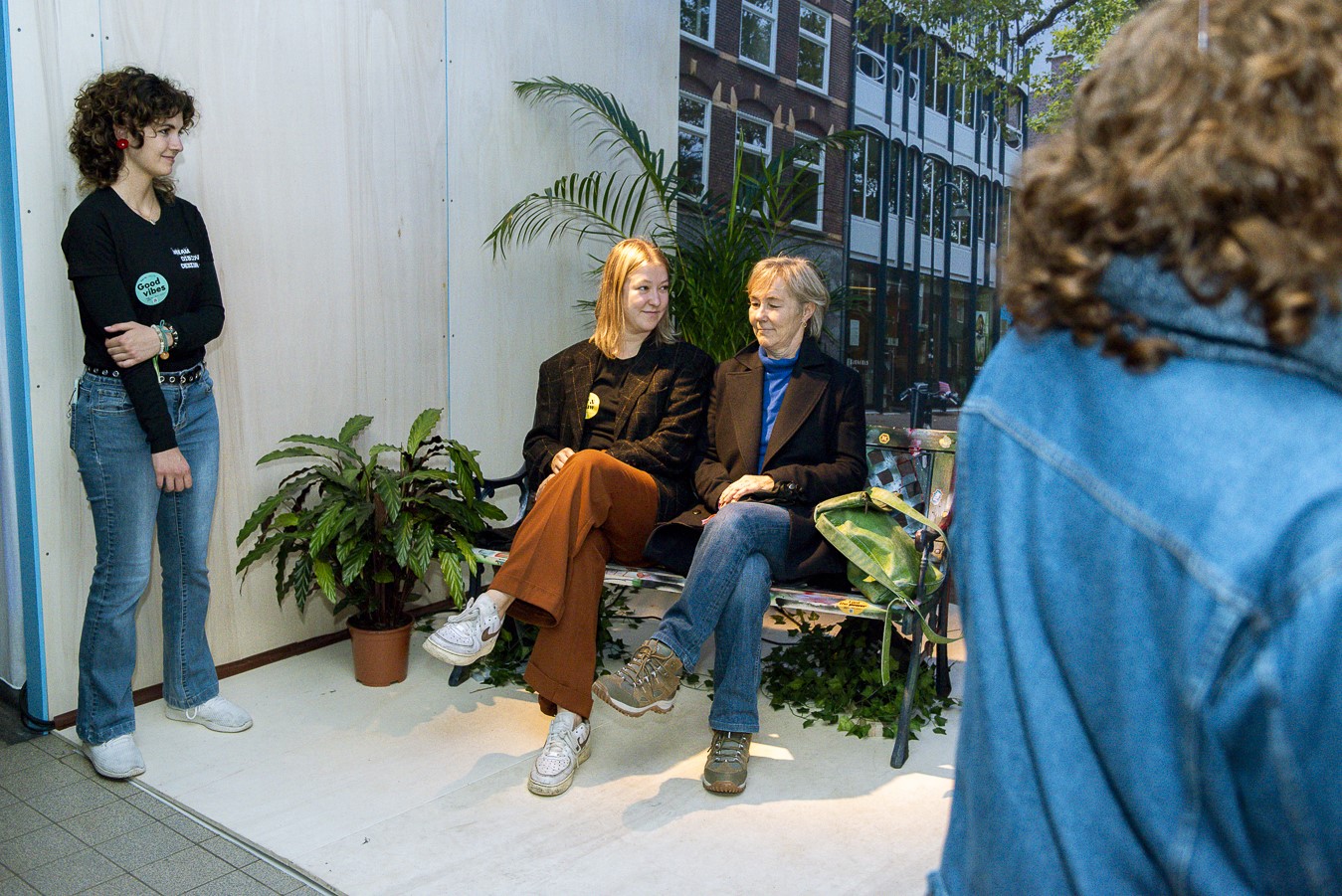Bruno the Bench
How can you improve the city
with Bruno the Bench?
Today, only a select few hold the power in urban planning. A large number of citizens are excluded from the process. Although city makers try to include citizens through participation, this is often thought of as being very time consuming or rather dull. Citizens also feel that they lack the expertise or know-how. We believe the power to shape the city should be divided more equally by making participation more accessible.
Bruno the Bench is part of a platform that solves this accessibility problem. Urban objects such as rubbish bins and traffic lights are brought to life, engaging citizens in conversations about their neighbourhoods, with their neighbourhoods. They can share their opinions and ideas on the physical and social aspects of the neighbourhood where the object is located. The objects in turn share their stories and observations. Through these conversations with the inanimate, people foster empathy and a deeper understanding of how their surroundings look and behave which strengthens their bond with the environment, its people, its space and its ‘things’.
Through the platform, urban planners can stay connected to citizens' stories and their needs. It collects all the conversations that citizens have with objects like Bruno. By actively listening and incorporating the narratives that are picked up by objects around the city, urban planners can in turn create more inclusive and responsive spaces. Bruno is a small part of a giant web that functions as a mediator for creating a collective vision for the future city.
Bruno the Bench is part of a platform that solves this accessibility problem. Urban objects such as rubbish bins and traffic lights are brought to life, engaging citizens in conversations about their neighbourhoods, with their neighbourhoods. They can share their opinions and ideas on the physical and social aspects of the neighbourhood where the object is located. The objects in turn share their stories and observations. Through these conversations with the inanimate, people foster empathy and a deeper understanding of how their surroundings look and behave which strengthens their bond with the environment, its people, its space and its ‘things’.
Through the platform, urban planners can stay connected to citizens' stories and their needs. It collects all the conversations that citizens have with objects like Bruno. By actively listening and incorporating the narratives that are picked up by objects around the city, urban planners can in turn create more inclusive and responsive spaces. Bruno is a small part of a giant web that functions as a mediator for creating a collective vision for the future city.
About the designers

We are Virginia Facciotto (1999), Rijk Roozenbeek (2000), Valentina Guadagno (1999), Ryan Tsai (2000) and Maartje Roggeveen (1997), an international and diverse group of Design for Interaction students at TU Delft’s Faculty of Industrial Design Engineering. Thanks to Virginia’s rationality and planning enthusiasm, Rijk’s steady-as-a-rock reliability, Valentina’s vibrancy and storytelling skills, Ryan’s triggering, unexpected views and Maartje’s innovative ideas and positivity we managed to put together a talking bench. Based on the data collecting possibilities of AI and the need for more inclusive city making we iterated on concepts weekly over the course of a semester. In collaboration with Citizen Voice, a platform for public participation and citizen engagement led by Dr. Juliana Goncalves at TU Delft, and the structure and know-how that was provided by the master course ‘Interactive Technology Design’ we created different contexts with different AI empowered tools to test, speculate and reflect on the possibilities and ethical dilemmas of the role of artificial intelligence in the future city. How should we deal with such a powerful technology that will inevitably be part of our lives in the future? Utopian scenarios were followed by dystopian ones, Bruno could fit in both. We hope people are triggered by the peculiarity of talking to an object and we hope the conversation continues so that the ethical concerns around inclusivity and AI are challenged by their future users.
What we do at TU Delft
Industrial Design Engineering?
How do we create cities that are more liveable, healthy, sustainable and welcoming for
all? These are some of the questions occupying Delft Design researchers involved in
urban planning including Assistant Professor Achilleas Psyllidis who uses data to tune
into the way people use the urban environment. His city maps and other tools help
identify and prioritise the ways in which we can design a better environment.
Meanwhile Assistant Professor Rebecca Price is collaborating with the municipality of Rotterdam and researchers from TU Delft’s Faculty of Architecture and the Built Environment and on the T-Roffa Lab-project. Using a mobile forest, the research team is investigating how the urban environment can be developed together with citizens and how cities can be made more climate-resistant via the cooling power of trees.
Meanwhile Assistant Professor Rebecca Price is collaborating with the municipality of Rotterdam and researchers from TU Delft’s Faculty of Architecture and the Built Environment and on the T-Roffa Lab-project. Using a mobile forest, the research team is investigating how the urban environment can be developed together with citizens and how cities can be made more climate-resistant via the cooling power of trees.




